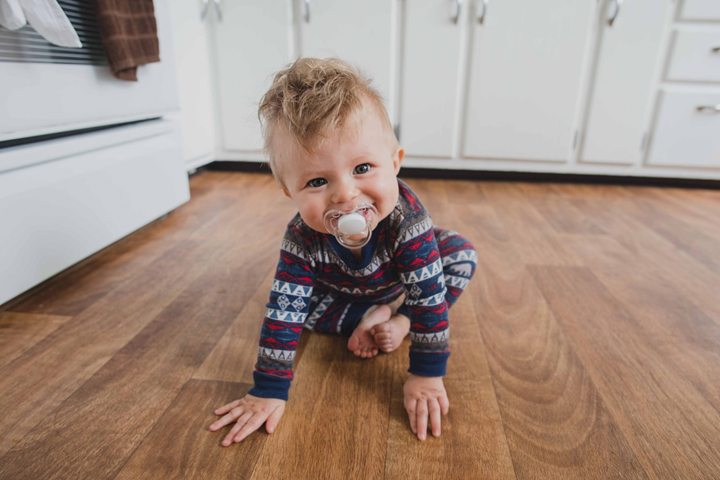Pros and Cons of Kitchen Flooring Options
Like most
families the kitchen can be a busy spot in the home with a lot of high traffic.
You also have the higher probability with instances of spills, crumbs, dropping
of utensils or small appliances and moisture on the floor. Not into a tile
flooring? Let’s weigh out the flooring options of hardwood, laminate, and vinyl
so you can make an informed decision when choosing the kitchen flooring for
your home.
Hardwood – Pros
- Classic beautiful flooring.
- Warmer under the feet than tile.
- Generally durable.
- You can connect that flooring theme throughout the home, especially nice in open plan design.
- A surface finish with a durable polyurethane can be applied that resists water more effectively
- Can be a great selling feature on resale.
- Option to refinish if floor gets damaged
Hardwood – Cons
- Is more susceptible to moisture if not properly protected.
- A durable finish is limited if moisture/spills are left for any time.
- Humidity and dryness may impact the floors effectiveness to resist moisture.
- Possible risk of damage from splatters or grease from the stove
- Oil stains or other stains that may be challenging to remove
Laminate Flooring – Pros
- Can be very stylish looking and mimics hardwood
- Durable for kids, pets, and spills
- Can tolerate spills on the floor but should be cleaned up quickly.
- A good underlay gives the feel of solid hardwood.
- There is laminate that mimics the look of tiles if its your preference.
- Easy installation.
- Tight seams can protect from moisture issues.
- There are highly rated scratch resistant versions available in engineered wood.
Laminate Flooring – Cons
- Susceptible to warping if moisture is continuous
- The floor can stain from spills.
- Floor can wear if under a great deal of stress
- Weak seams that are not tight, may allow moisture to enter and cause damage.

Vinyl – Pros
- There are waterproof options exist that exist in vinyl.
- Vinyl comes in boards, tiles, or vinyl sheets
- Some products may come with a 15yr warranty
- Cleaning is effortless
- Prices are very affordable with the cheaper peel and stick options.
Vinyl – Cons
- Vulnerable to gashes or cuts from sharp objects.
- Premium vinyl will cost you more but remains less expensive than premium solid or engineered hardwood.
- Subfloor must be in optimal shape before installation or repairs should be complete.
- Subfloor must be meticulously clean, or bumps will be noticed in the vinyl.
- Marginal impact on the value of your home.
Looking at all we have learned; vinyl appears to be a great option, but I think we also need to take into consideration our lifestyle. Perhaps you don’t cook or use your kitchen a great deal, maybe you don’t have kids running around. Hardwood or engineered flooring may be a suitable choice for you.
An option for those concerned about any excess water on the floor is a small investment with Water Leakage Detection Alarm and Sensor or similar product. You can place it under the sink or under your dishwasher to give you peace of mind.
Get cooking with a new floor in your kitchen.

